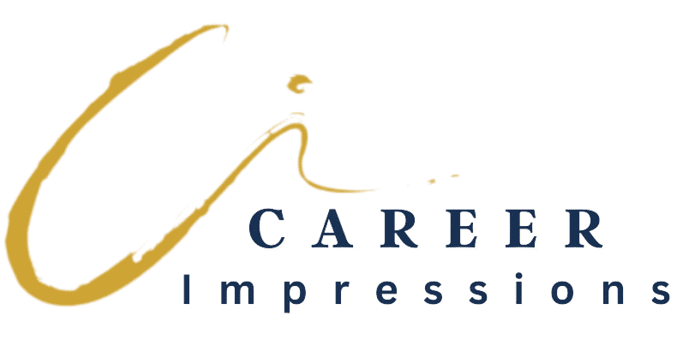
From Executive to Advisor: How to Reframe Your Resume for Board and Advisory Roles
For many executives, the next career move isn’t climbing higher in the C-suite. It’s stepping sideways into something different: advisory work. After years of making decisions, driving results, and carrying the weight of execution, the idea of shifting into a role where influence, counsel, and perspective matter most can be both liberating and exciting.
The Advisory Career Landscape
Advisory opportunities take many forms. Corporate board seats carry governance and fiduciary responsibilities. Advisory boards enable you to lend specialized insight, often in a less formal capacity, providing non-binding strategic counsel without the legal oversight of a full board. Private equity and venture capital firms draw on the expertise of executives who’ve scaled, transformed, and sold businesses before. And then there’s the fast-growing world of independent advisors and fractional executives who share wisdom on a project or part-time basis.
What these roles all have in common is that they demand something different than a C-suite post: they don’t want you to run the show, they want you to guide the show. That distinction is where many executives stumble when they put their credentials on paper. A resume that screams “operator” won’t necessarily convince a board or investor that you’re ready to be a trusted counselor.
Why Reframing Matters
Take a common example. A CEO might proudly list: “Directed a 1,200-person division and delivered 15% CAGR over 4 years.” Impressive, yes — but it highlights command and ownership. For an advisory role, the same accomplishment reframed as: “Advised executive peers and board stakeholders on strategic decisions that supported 15% CAGR over 4 years” sends a different signal. It says: I know how to guide growth, not just deliver it.
That’s the shift. From execution to influence. From hands-on management to independent counsel. From being the decision-maker to enabling others to make informed decisions. This is the same principle I emphasize in my post on executive resume storytelling: how you frame your achievements makes all the difference in how your value is perceived.
Finding Advisory Experience You Already Have
The good news is that most executives already have advisory experiences woven through their careers — they just haven’t been calling them that. Maybe you chaired a steering committee that oversaw a multi-million-dollar program. Maybe you guided investors through risk considerations during an acquisition. Maybe you mentored high-potential leaders who are now in senior roles themselves. All of that counts as advisory work. The trick is surfacing it and giving it the right language.
Consider the case of one retiring COO who wanted to move into private equity advisory work. His resume was filled with operational achievements: plant expansions, system rollouts, and cost savings. Strong accomplishments, but heavy on execution.
Together, we reframed those into the counsel he provided to peers and boards: how he guided leadership through $500M in capital planning, how he advised on market-entry strategies in two international expansions, and how he coached next-generation executives during succession. Suddenly, his resume wasn’t just the story of an operator; it was proof of an advisor who could bring strategic foresight to portfolio companies.
Governance and Credibility Matter
Boards and investors will also look for governance. Even if you haven’t held a formal board seat, think about the times you’ve worked alongside one. Reporting to directors, building compliance frameworks, and navigating regulatory landscapes. These are governance touchpoints that deserve a spotlight. They demonstrate that you understand fiduciary responsibility, not just operational leadership.
There’s another nuance worth acknowledging: many executives don’t step straight from full-time C-suite to pure advisory life. They blend. Some serve as fractional leaders while taking on their first board appointments. Others combine consulting with mentoring or industry council work. If that’s your reality, it belongs on the resume, too. Labeling a section “Advisory Contributions” signals intentionality and proves you’re already flexing that advisory muscle.
And then there’s the credibility question. Some boards worry that former operators may overstep and default to telling management what to do, rather than advising. You can address this head-on by emphasizing skills such as mentoring, consensus-building, and independent judgment. Phrases such as “pragmatic counsel” or “valued for constructive challenge” help position you as the trusted partner, not the backseat driver.
Tailor to the Role and Industry
Of course, advisory expectations vary by industry. Healthcare boards typically want regulatory insight. Private equity firms seek individuals with firsthand experience in integrations—for example, start-ups value scaling know-how and investor communication. A resume tailored to the role should highlight the most relevant threads of your background for that context.
The final piece, and perhaps the most overlooked, is influence. Advisory success hinges not just on what you know, but on how you deliver it. Can you ask the right questions in a boardroom? Can you mentor a CEO without overshadowing them? Can you unify perspectives when stakeholders clash? These are soft skills, but they belong on the page. They reassure selection committees that your value extends beyond technical expertise.
Positioning for Your Next Chapter
So, when you’re reworking your executive resume for board and advisory roles, think less about what you did as an executive and more about what you enabled. Think less about the empire you built and more about the wisdom you can share to help others build theirs.
The difference may be subtle in wording, but it’s profound in positioning. A strong advisory-focused resume shows you’re not just a seasoned operator, but a strategic counselor ready to guide, govern, and influence at the highest levels. I also share insights in this post on aligning executive resumes with 2025 market demands, which complements the idea of positioning your experience to align with the values boards and investors prioritize today.
Key Takeaways
-
Advisory roles require executives to shift from operator to influencer, emphasizing guidance and counsel over direct execution.
-
Many leaders already have hidden advisory experience — mentoring, steering committees, investor guidance — that can be reframed for resumes.
-
Boards seek evidence of governance, credibility, and independent judgment, not just operational success.
-
Tailoring achievements to industry context and showcasing influence skills strengthens readiness for board and advisory positions.
Looking for assistance writing a board-ready resume? Reach out.
